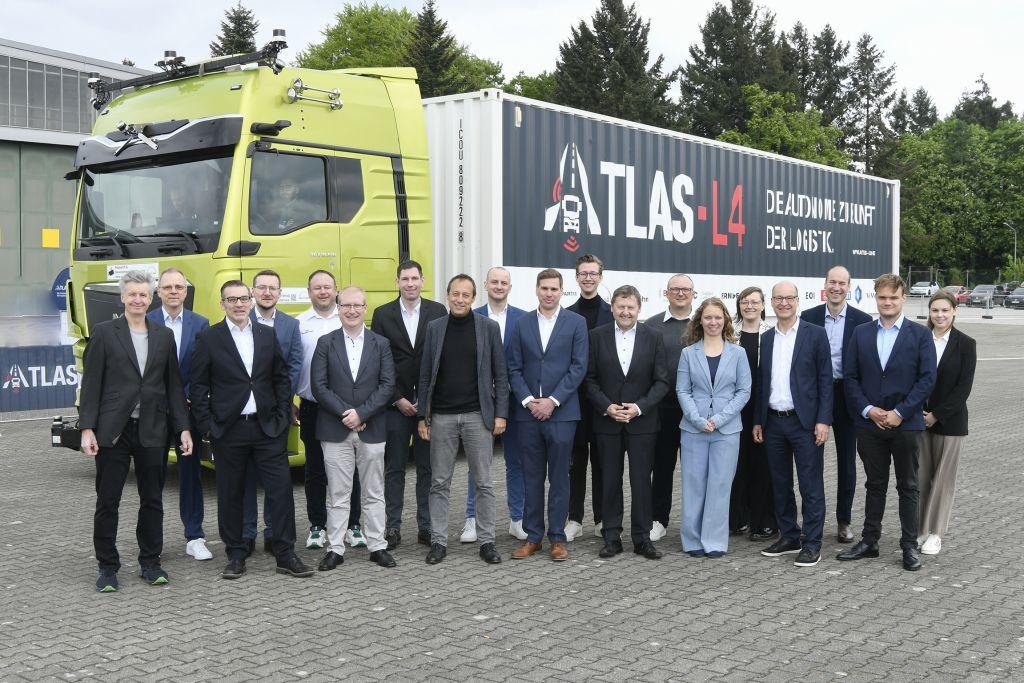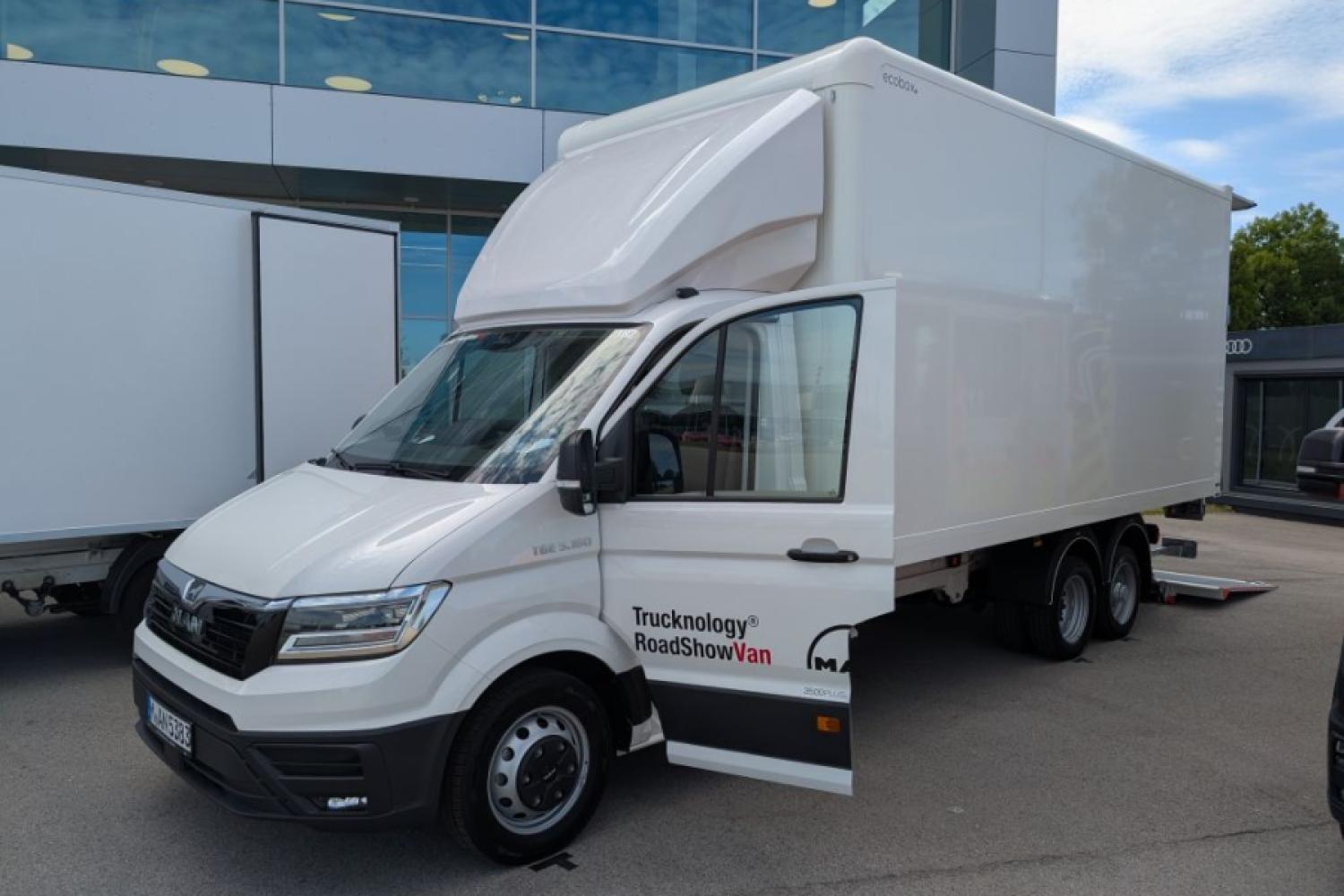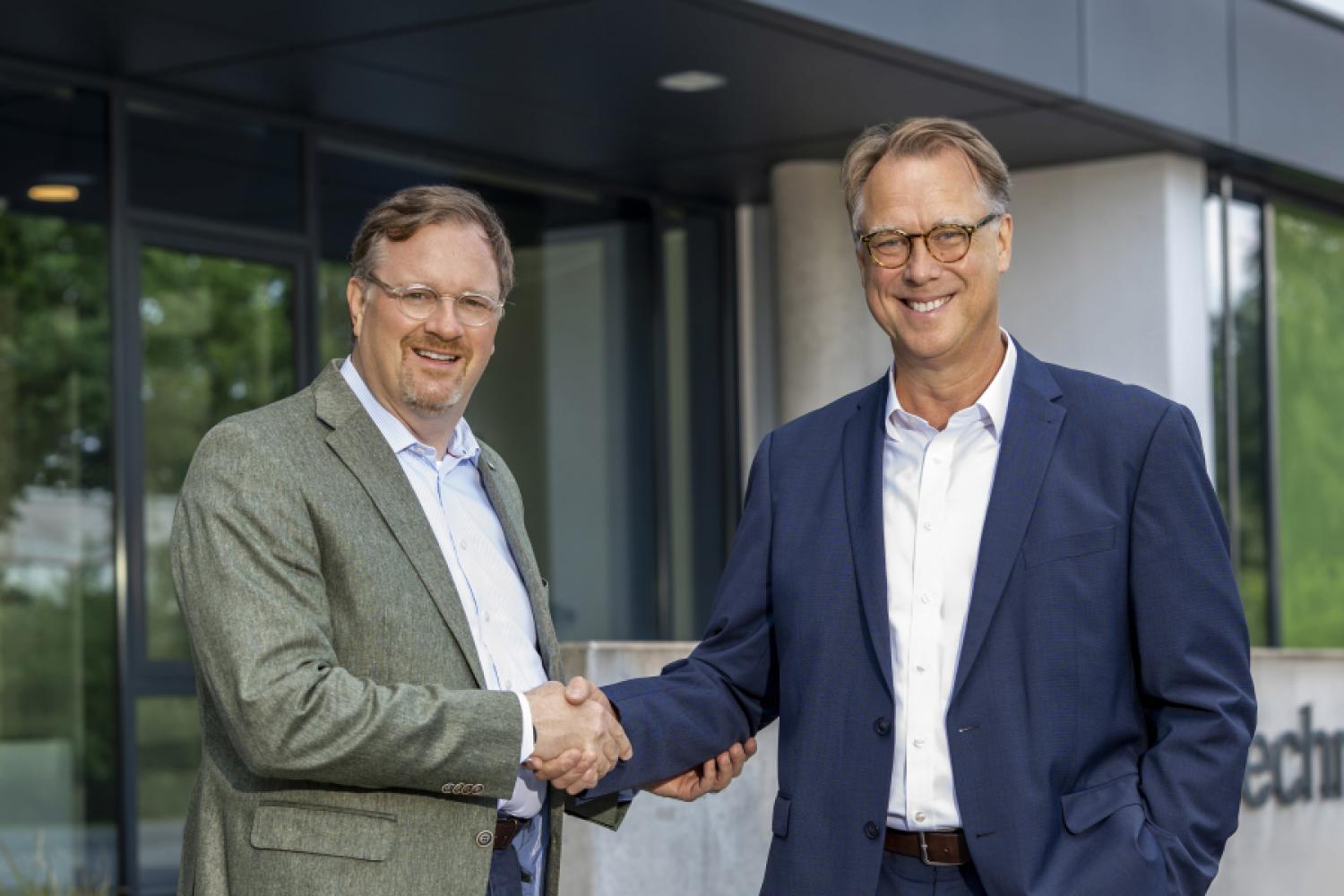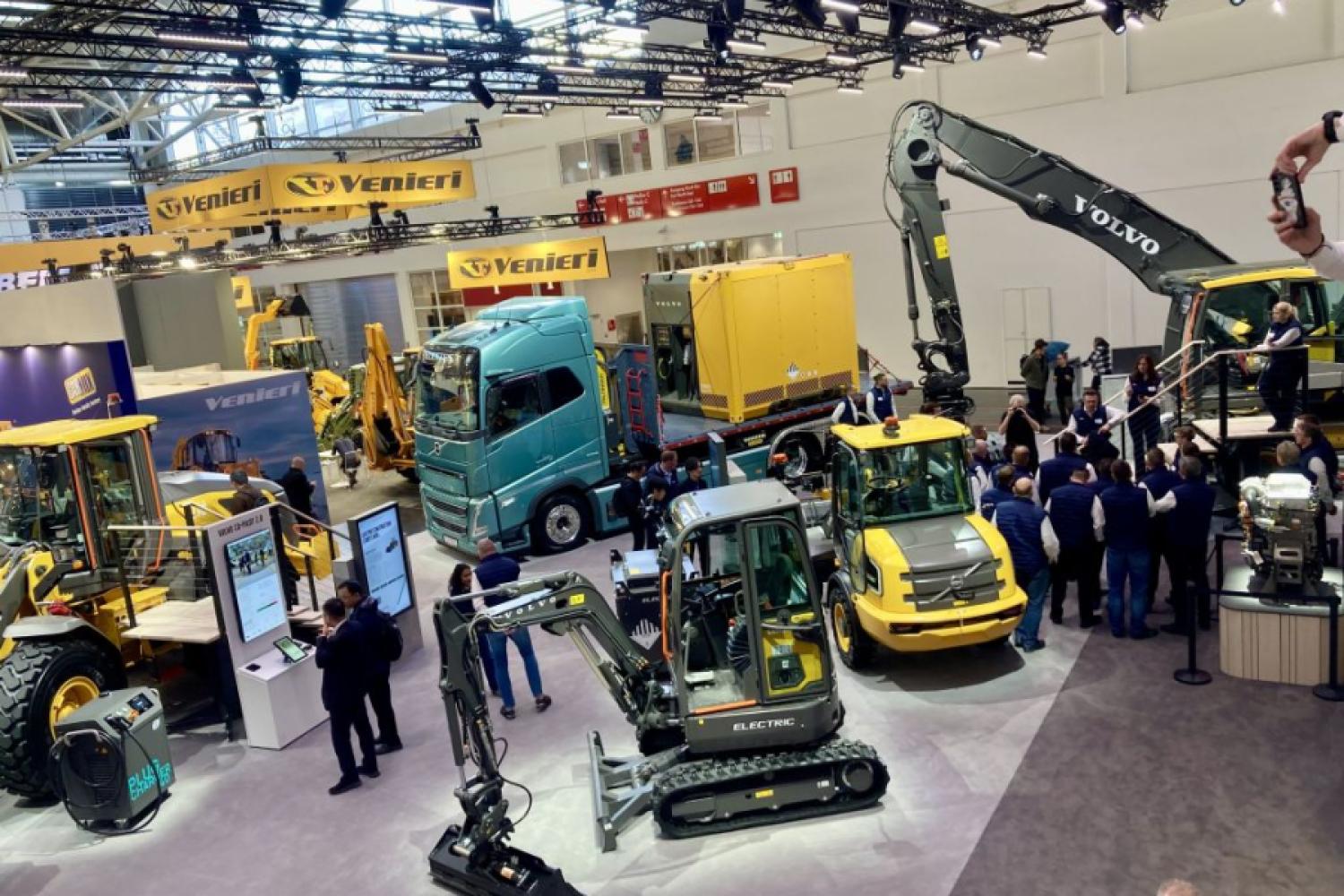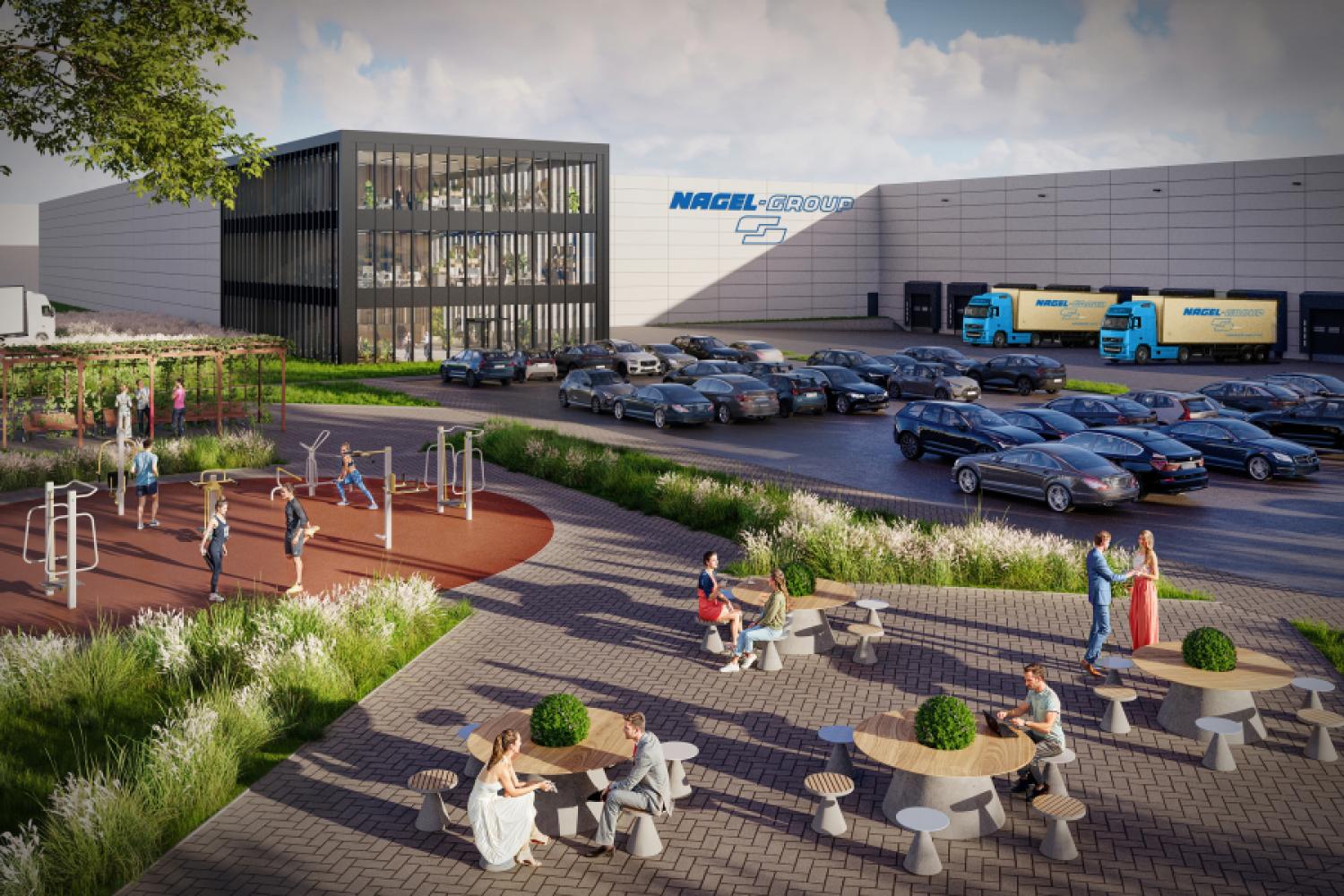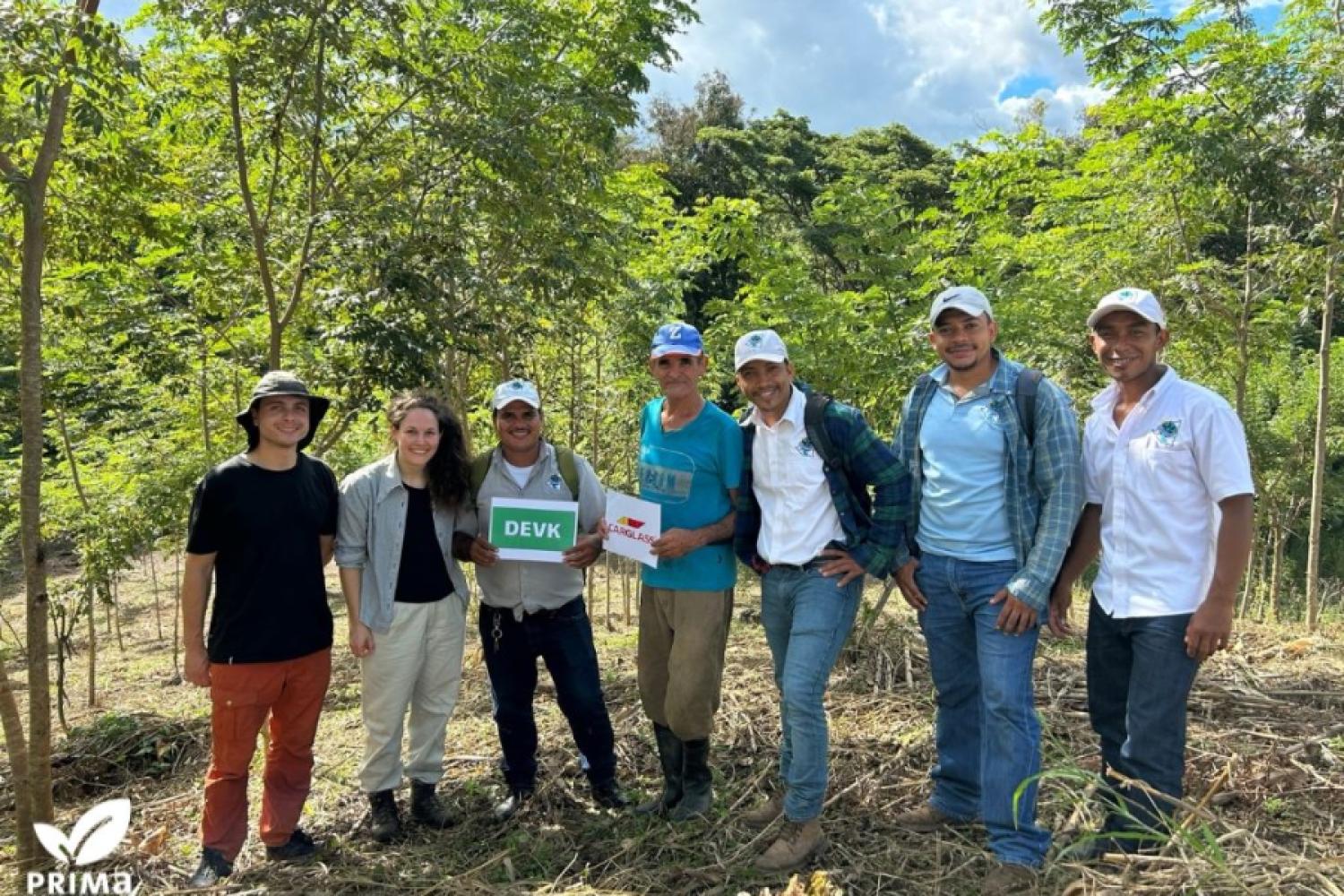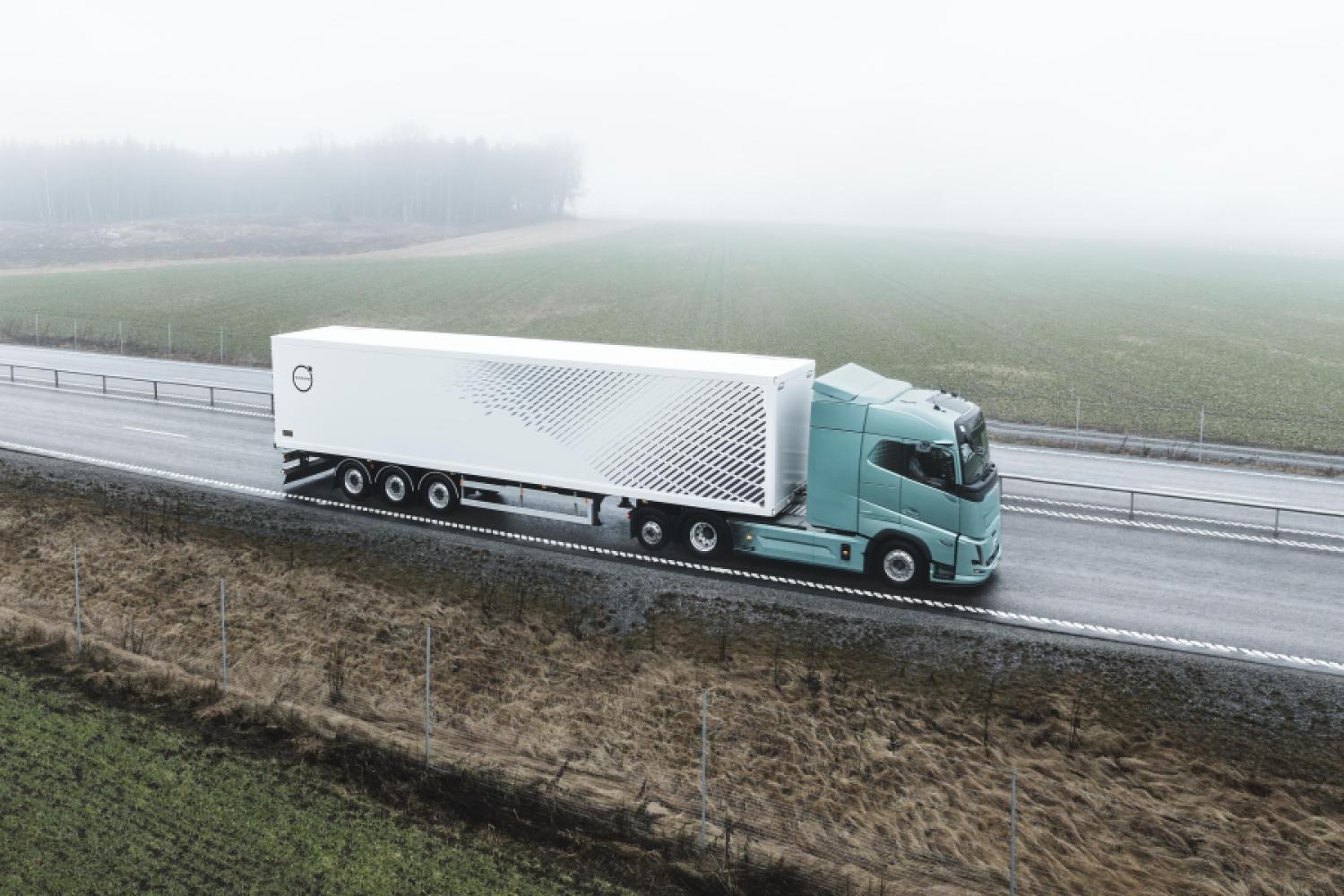After three years, the twelve project partners from industry, science, software development, and infrastructure have drawn a successful balance sheet for the ATLAS-L4 (Automated Transport between Logistics Centers on Highways at Level 4) research and development project. The autonomous truck in road traffic has become a reality thanks to the work of around 150 engineers, according to the conclusion. Now, the project participants presented the project results to about 200 guests in the presence of representatives from the Federal Ministry for Economic Affairs and Climate Action, with driving demonstrations at the ADAC Mobility Test Center in Penzing and on the highway, an exhibition covering around 1,000 square meters, and scientific lectures.
MAN Truck & Bus, Knorr-Bremse, LEONI, Bosch, FERNRIDE, BTC Embedded Systems, Fraunhofer AISEC, Technical University of Munich, Technical University of Braunschweig, TÜV SÜD, Autobahn GmbH, and the Würzburg Institute for Traffic Science (WIVW GmbH) have joined forces for this purpose. The consortium aimed, with the project funded by the Federal Ministry for Economic Affairs and Climate Action and equipped with a
total budget of 59.1 million euros, to bring a Level-4 automated and thus autonomously driving truck for hub-to-hub transport onto the highways. The basis for this was the law passed in 2021, which fundamentally enables autonomous driving on defined routes under technical supervision and puts Germany in a pioneering role globally.
"Together with our partners, we have set ourselves a high goal and realized an industrializable basic concept for autonomous driving in hub-to-hub applications. The development and integration of the redundant components necessary for safe use, such as steering, braking, and onboard network, as well as the creation of a validation concept, required interdisciplinary competence and close teamwork. As a consortium, we have proven with the project: autonomously driving trucks are realizable," summarizes Frederik Zohm, Board Member for Research and Development at MAN Truck & Bus.
From his perspective, innovations such as autonomous driving require cooperation to advance future technology in Germany and Europe. On January 1, 2022, the starting signal for ATLAS-L4 was given. After the Federal Motor Transport Authority granted
the first Level-4 testing permit for a commercial vehicle manufacturer in April 2024, the premiere in public road traffic took place with the first highway drive of an autonomous truck in Germany – accompanied by Federal Transport Minister Volker Wissing. During this and all subsequent test drives, there was always a safety driver on board. The automation software in the vehicle was continuously optimized through regular releases over a long period and tested directly in practice.
In the end, the mission is accomplished!
According to their own statements, the consortium was able to check off all project goals. The safety-relevant components for the Level-4 architecture, such as the redundant braking system, onboard network, and steering, were built. A validation concept was developed, and the control center for technical supervision was put into operation in parallel. Risk analyses and safety considerations for Level 4 – including cyber security in the form of authentic and encrypted communication, as well as the definition of functional safety measures such as redundancies and degradation concepts for the
autonomous driving system – took place. The result is a prototypical technology as a blueprint for further projects and series developments.
To be continued
From the perspective of those responsible, the work of ATLAS-L4 can be used as a basic concept for future industrial developments, whereby various detailed issues that the project has revealed must still be clarified for a series-production autonomous truck.
“We have provided valuable pioneering work by practically demonstrating the technical feasibility of autonomous trucks,” says Project Coordinator Sebastian Völl, MAN Truck & Bus. “These concepts are now feeding into further development work for the series development of autonomous trucks.”
After all, Logistics 4.0 offers a lot of potential. Driverless trucks as part of a hub-to-hub automation for shuttle journeys between logistics centers could make a significant contribution to more efficiency, as well as to avoiding traffic jams and accidents, argued the participants. Automation concepts also offer a solution approach to the driver shortage that the industry has been suffering from for years. Currently, about 100,000 truck drivers are
